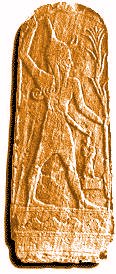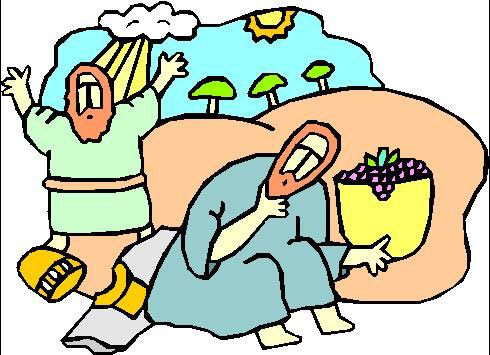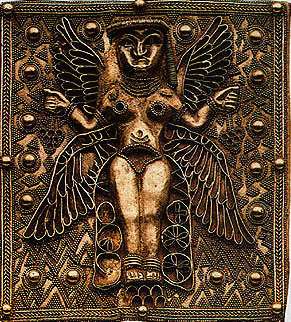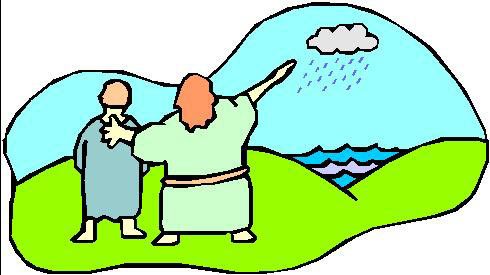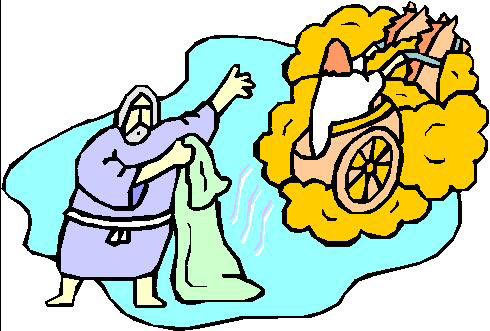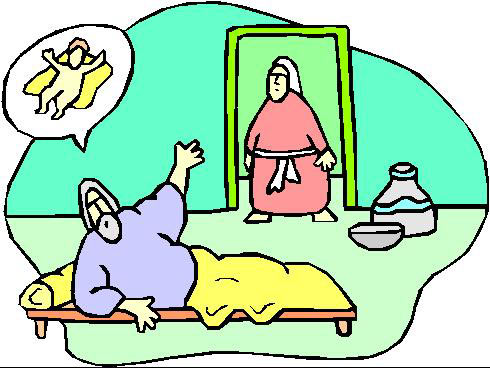Dr. Dave Strem is Pastor of the Trinity Evangelical Free Church of Eustis, Florida. He has a M. Div. from Talbot Theological Seminary and a D. Min. from Fuller Theological Seminary.
James W. Skeen has a B.A. with a double major of Bible and Psychology from Toccoa Falls College, and Masters degrees in social sciences from St. Cloud State University and Florida State University. James is certified in Choice Theory/Reality Therapy from the William Glasser Institute. His articles have appeared in several written journals, e-journals, and e-magazines including The Christian Online Magazine.
We invite you to support this ministry. Contributions in support of this Ministry are tax-deductible. Kindly send your support to
Bethany Fellowship International
6820 Auto Club Road, Suite A
Bloomington, MN 55438.
Please write Thirumalai's Ministry in the memo column.
BOOKS FOR YOU TO READ
AND DOWNLOAD
- THE LAW IS HOLY by Pastor Harold Brokke
- WORLD MISSIONS - A HISTORICAL PERSPECTIVE
by Tom Shetler - LIVE A VICTORIOUS LIFE IN THE SHADOW OF THE CROSS! : INTERCESSION, WARFARE, AND DELIVERANCE
by Pastor Ted Hegre. - MISSING PIECES: THE INCOMPLETE GOSPEL by LeRoy Dugan
- LUTHER'S PROTEST by M. S. Thirumalai
- TELL ME IT'S TRUE ...
A Book Of Poems by Stan Schmidt - SOMETHING IS GREATER THAN WONDERS...
A Book Of Poems & Free Verses by Pastor Harold Brokke - GEMS OF TRUTH by Stan Schmidt
- WHERE IN THE WORLD IS GOD? by Alec Brooks
- LIGHT OF THE WORLD, an Original Screenplay by W. G. Orr
BACK ISSUES
- NOVEMBER 2001
- DECEMBER 2001
- JANUARY 2002
- FEBRUARY 2002
- MARCH 2002
- APRIL 2002
- MAY 2002
- DECEMBER 2002
- JANUARY 2003
- FEBRUARY 2003
- MARCH 2003
- APRIL 2003
- MAY 2003
- JUNE 2003
- JULY 2003
- AUGUST 2003
- SEPTEMBER 2003
SEND YOUR ARTICLES FOR PUBLICATION IN Christian Literature and Living.
- E-mail your articles and book-length reports to thirumalai@bethfel.org or send it by regular mail to:
M. S. Thirumalai, Ph.D.
6820 Auto Club Road #320
Bloomington, MN 55438 USA - Your articles and booklength reports should be written, preferably, following the MLA Stylesheet.
- The Editorial Board has the right to accept, reject, or suggest modifications to the articles submitted for publication, and to make suitable stylistic adjustments. High quality, academic integrity, ethics, and morals are expected from the authors and discussants.
Copyright © 2001
M. S. Thirumalai
ELIJAH AND ELISHA
GOD'S PROPHETS AGAINST IDOLATRY
Pastor Dave Strem and James W. Skeen
MINISTRY TO WARN PEOPLE
Elijah and Elisha are two prophets that ministered and prophesied to the kingdom of Israel prior to the time of their captivity to the Assyrians. The kingships of Saul, David, and Solomon had passed and Israel was more influenced by the surrounding nations than they were influenced by it. Their ministry was to warn God's people to shape up or God was going to ship them out to captivity. They had walked away from the God of their fathers. They were now following Baal.BAAL WORSHIP
Merrill Unger says this about Baal worship:
Baal, a common Canaanite word for 'master', 'lord,' was one of the chief male deities of the Canaanite pantheon…. Baal was the son of El, the father of the gods and the head of the Canaanite pantheon…. Baal was thus the farm god who gave increase to family and field, flocks and herds. He was likewise identified with the storm-god Hadad whose voice could be heard in the reverberating thunder that accompanied rain, which was so necessary for the success of the crops. The inhabitants of Canaan were addicted to Baal worship, which was conducted by priests in temples and in good weather outdoors in fields and particularly on hilltops called 'high places.' The cult included animal sacrifice, ritualistic meals, and licentious dances. Near the rock altar was a sacred pillar or massebah, and close by the symbol of the asherah, both of which apparently symbolized human fertility. High places had chambers for sacred prostitution by male prostitutes and sacred harlots. The gaiety and licentious character of Baal worship always had a subtle attraction for the austere Hebrews bound to serve a holy God under a rigorous moral code (Unger, p. 413).King Ahab and his queen, Jezebel, were the chief promoters of Baal worship in Israel. They brought hundreds of prophets into Israel to make Baal worship the official religion.
ELIJAH
Elijah and Elisha were God's messengers during this time of apostasy and idolatry.
Elijah was the prophet to the northern kingdom. He confronted King Ahab and Jezebel, the high priestess of Baal worship. He told them that God's judgment was on them for corrupting Israel and leading them astray. And that it would not rain until they turned back to God. For the next three and a half years famine visited Israel. Elijah went into seclusion for the entire time. Unable to find Elijah, Jezebel killed some of the prophets of the Lord.
Where did Elijah hide for three and a half years? The story is interesting.Then the Lord said to Elijah, 'Go to the east and hide by Kerith Brook at a place east where it enters the Jordan River. Drink from the brook and eat what the ravens bring you, for I have commanded them to bring you food' (1 Kings 17:2-4).Elijah stayed at this place until the brook dried up. Then God told him to go to Zaraphath because He had a widow there who would take care of him. When Elijah met her she had only enough flour and oil left to make a small meal for her son and herself. Although she had little, she was willing to share with Elijah. Because of her generosity, the Lord blessed her.
For this is what the Lord, the God of Israel, says: 'There will always be plenty of flour and oil left in your containers until the time when the Lord sends rain and the crops grow again.'God fulfilled His promise to the widow and Elijah to take care of them. He provided the food and had them take care of each other.
ELIJAH'S RETURN
After many months, Elijah returned to Israel and presented himself before Ahab. Elijah told him that God was displeased with him and his family for neglecting the commandments and promoting Baal worship. Elijah commanded Ahab to gather 450 prophets of Baal and 400 prophets of Asherah. 1 Kings 18:21 records Elijah's rebuke:
Then Elijah stood in front of them and said, 'How long are you going to waver between two opinions? If the Lord is God, follow him! But if Baal is God, then follow him!" Elijah challenged the false prophets. "The prophets of Baal were challenged to prevail upon their god to ignite the prepared offering. From morning until late afternoon they performed their vain rituals while Elijah ridiculed their futile efforts. Elijah then repaired the altar of the Lord, prepared the sacrifice, drenched it with water and called upon the God for divine confirmation. The offering was consumed, and all Israel acknowledged God. Immediately the false prophets were executed at the brook Kishon (Schultz, p. 176).Elijah then prayed for rain, and it came.
ELIJAH'S COMPLAINT
Ahab immediately left by chariot to drive about fifteen miles to tell Jezebel what Elijah did to the Baal prophets. Jezebel was furious and vowed to slay Elijah. She sent him the following message:
May the gods also kill me if by this time tomorrow I have failed to take your life like those whom you killed (1 Kings 19:2).Elijah fled for his life. In a deep depression, he started complaining to God,
Why is this happening to me? I've done everything you said. I've been really, really good. I've stood up for you and now it's not working out. I want to know why." God said to him, "Go out from the mouth of the cave and stand.
Elijah looked and saw a tornado, and in the middle of the tornado there was no voice from God, and then there came fire and in the fire there was no voice from God, and then there came an earthquake and in the earthquake there was no voice from God but then in the still, small voice God spoke to him. He said in a whisper,
Elijah, what are you doing here?" Elijah responded, "God, you know what I'm doing here. I'm running for my life.God said to Elijah,
What are you doing here? You have run from the face of the enemy who I have control of. Oh, you of little faith. Can you not trust that I will be with you? I will protect you. I will strengthen you. I have just defended you from 450 priests of Baal, what is one queen going to do to you? You panicked and you ran. Trust me.Soon afterward, God told Elijah to find a man named Elisha and to train and anoint him as Elijah's future replacement. Elijah found Elisha plowing his field. Elisha accepted God's call for his life and became Elijah's assistant.
Second Kings 2 records events that were significant in the passing of the prophetic mantle from Elijah to Elisha. God took them on a tour of four places that have historical significance to the people of Israel.
"Then the Lord was about to take Elijah up into heaven in a whirlwind and Elijah and Elisha were on their way from Gilgal" (v. 1).GILGAL
Gilgal is a vitally important place in Israeli history. Remember when the high priests crossed the River Jordan with the Ark of the Covenant, when the people finally went into the Promised Land? Where did they go? They crossed the river and Joshua had them pick up twelve stones from the riverbed and carry them over to the other side and stack them in a mound where they camped that first night. This was Gilgal. It was the place where they held a celebration for the cutting off of the old life and a moving to a new life. It is where God settled them and it's where they took the covenant God had given them. There they stacked the stones and there they circumcised all the people who had not been circumcised in the wilderness. It is where they celebrated all that God had done for them in the past. It was there they realized God's provision for them throughout the 40 years in the desert.
ELIJAH, ELISHA, AND BETHEL
Elijah said , "Elisha, God has told me to leave Gilgal and go on to Bethel. Elisha, you stay here. It's a long walk and I don't know what's going to happen. I want to keep you safe. They are trying to kill me. Therefore, Elisha, stay here (v. 2a)." And Elisha said, "I will not stay here. Wherever you go, I am going to go (v. 2b)." Not only did Elisha go to Bethel with Elijah, but God sent them to Jericho and to Jordan, as well. God wanted them to remember these key places because He did key things for His people at them. He especially wanted Elisha to be cognizant of his role in the restoration of God's people to their original calling.
When Abraham left his homeland and crossed the Syrian desert, it was at Bethel that he built the first altar. Bethel is also the exact location that Jacob stopped and rested when he was fleeing from Esau, and where he had the dream of the angels ascending and descending on a ladder that reached to heaven. Jericho was the place of great victory where the walls came tumbling down. It is at the Jordan where God promised Israel victory and a land to dwell if they were faithful. And during New Testament times, it was where John the Baptist and Jesus started their ministries. Places of historical significance have always played a part in God's word. Significant ingredients in the worship of God are thankfulness and appreciation for past acts of divine graciousness and love. The Jordan signifies to us God's promise of the newness of life for all who will believe.
BEYOND BETHEL
In 2 Kings 2:8, Elijah took his cloak and rolled it up as they were getting ready to cross the Jordan and struck the water with it and the water divided into two. Both crossed over on dry ground. After they crossed, Elijah said to Elisha, "Tell me Elisha, why are you here? You could have stayed in Gilgal, you could have stayed in Bethel, you could have stayed at Jericho, you could have stayed on the other side of the Jordan. Why have you gone through all this? What is it you want?" Elisha essentially said, "Elijah, you're good, but I want to be better. I want more of what you have. Let me inherit a double portion of your spirit. Elijah, I want twice what you have. I want to have twice as much insight. I want twice as much grace; twice as much faithfulness."
DOWNSIDE TO ELIJHA'S LIFE
As faithful as Elijah was, there were some downsides to Elijah's life. Elisha wanted to be completely sold out, with no compromise, no fear, no holding back. Elijah recognized this as an extraordinary request. He told Elisha that it was God's decision to make.
It is God's spirit, it is not my spirit. You think you want more of what I have, no, it's what God's doing through me. It's His holy spirit that you're asking for and I can't give it to you but if you see me when I'm taken up, God will give it to you.CHARIOT OF FIRE, AND ELISHA'S PRAYER
As they walked together, a chariot of fire with horses of fire appeared and separated them and Elijah went up into heaven in a whirlwind. Elisha saw this. He took his own clothes and tore them and picked up the cloak that had fallen from Elijah and went back and stood on the bank of the Jordan. Then he took the cloak that had fallen from Elijah and struck the water with it and said, "Where is the Lord of Elijah?" And the waters divided to show the 50 prophets on the other side and more importantly to show Elisha, that God's call and ministry now rested with him.
What did Elisha ask for? He asked for a double portion of God's spirit. As a child, how many of us knew all about Elijah but little about Elisha? Elijah was the well-known and fiery prophet who called fire down from heaven. Elisha was second in command, the servant, the assistant. He was not a showy character. But when you look at Elisha closely you see something fascinating.
DOUBLE PORTION FOR ELISHA, HOW AND WHY?
In the whole Bible there are 3-4 chapters that talk about Elijah's life. But there are 6-8 chapters that talk about Elisha's life. When you count the miracles of Elijah, you find 10-12 depending on whether you talk about the starting and stopping of rain as one or two miracles. How many do you think you find when you study the story of Elisha? There are 20-24 recorded miracles attributed to Elisha. Elijah focused on King Ahab and the kingdom of the north. Elisha's ministry is doubled because he focused not simply on Ahab and the kings of the north but he also focused on Jehosaphat, king of Judah, and the kings of the south. He had twice as much influence, twice as many miracles recorded. Twice as much impact on lives. Is this just a coincidence? He asked for a double portion and it's recorded in God's word that a double portion was granted in the form of miracles, influence, and impact.
DOUBLE PORTION FOR US
It is very easy to be satisfied and complacent, to live in the past and celebrate all the great things God has done. Israel had this problem. It always remembered to celebrate the different festivals that recognized God's past deeds but it forgot to live with him in the present. It is easy to do that. It is tempting to do because it does not require present change. Elisha did not fall for this temptation. He asked for, and received, a fresh and double portion of God's spirit.
What difference would a double portion of God's spirit make in our lives? What difference would a double portion of God's spirit make in our churches? Tell me, what difference would it make? Bigger outreach. Changed lives. Missionary work. A more excellent relationship with Christ and more sensitive to the needs of others. A more humble nature. Crowded buildings. Expanded youth programs. You think God wants these things to happen. Why won't they? The only thing standing in God's way is us. Dare you pray for a double portion of God's spirit. Dare you pray the prayer of Elisha?
We should ask, "Not where is the God of Elisha, but where are the Elisha's of God? Where are those willing to ask God for a double portion of His spirit? Who dare challenge God, and say, 'Lord, I open myself up to you.'" Sometimes when we pray such a prayer God will bring disruption and trial to our lives. If that happens, don't be depressed, don't hide out in a cave like Elijah but trust him to lead you onto higher ground, to multiply your effectiveness, to bring better things to your life. God is not one who takes things away from our lives except when it is those things that destroy and consume our lives in unhealthy ways. Dare to pray. Dare to pray, "Lord, bless us with a double portion of your spirit!"
REFERENCES
Schultz, Samuel J. (1980). The Old Testament Speaks. San Francisco: Harper and Row.
Unger, Merrill F. (1979). Unger's Bible Dictionary. Chicago: Moody.
JUST WAR, UNJUST WAR, AND JUSTICE DURING WAR | JESUS AND UNBELIEF - John 2-12 | TEN COMMANDMENTS FOR HEALTH CARE PROFESSIONALS | THE NATURAL LAW IS WHAT WE NATURALLY KNOW - A Conversation with Professor J. Budziszewski. | ELIJAH AND ELISHA - GOD'S PROPHETS | WHAT IS THE CHURCH? AND WHAT IS MY CHURCH? | THE LAW IN GENESIS | HOME PAGE | CONTACT EDITOR
James W. Skeen
E-mail: jcnr@mpinet.net
